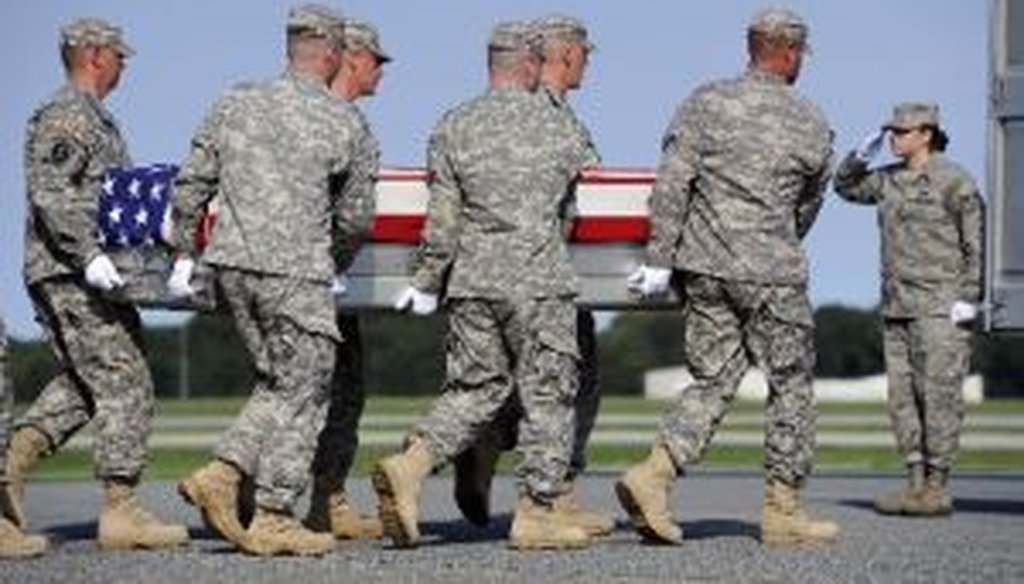Get PolitiFact in your inbox.

An Army team carries a transfer case containing the remains of Army Sgt. Devin Daniels, of Kuna, Idaho, who died in Afghanistan.
On a recent trip to Pakistan, Sen. Bob Casey, talked to that nation's leadership about what they could do to help reduce the carnage caused by improvised explosive devices, or IEDs.
IEDs are a favorite weapon on insurgent fighters since they can be constructed from such easily available items as cell phones, batteries and radios and triggered either remotely or by passing vehicles. Casey talked to the Pakistani leadership about the need to reduce the flow of the explosive ammonium nitrate to neighboring Afghanistan to prevent deaths of American fighters and their allies.
In Pakistan, during a conference call with journalists, Casey reflected on service members from Pennsylvania who had been killed in Afghanistan, saying that "it is very, very rare that someone who is killed in action is not killed by an IED."
Casey was right that IEDs are a major killer in the war in Afghanistan, but he went too far when he said that other causes of deaths in hostile action are "very, very rare," so we rated his statement Mostly False.
Our Sources
See Truth-O-Meter item















































